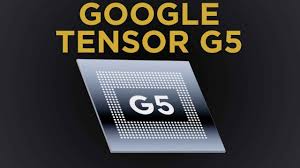Microsoft has signaled its intention to sign the European Union’s voluntary Code of Practice for general-purpose AI (GPAI), while Meta has formally rejected the framework. This divergence occurs as companies gear up for the AI Act compliance deadline starting August 2, 2025. (Reuters)
The GPAI Code of Practice, published on July 10, 2025, is intended to help firms navigate compliance under the AI Act by setting voluntary standards for transparency, copyright management, and safety. Signatories gain legal certainty and reduced administrative burdens. (AP News; Reuters)
Voluntary Code Offers Compliance Pathway
The Code, developed by 13 independent experts through extensive stakeholder engagement, outlines three chapters: transparency, copyright, safety/security for systemic‑risk models. While voluntary, signatories qualify for a “rebuttable presumption of compliance” under the AI Act. (EU Digital Strategy; Reuters)
As a voluntary instrument, GPAI guidelines are not mandatory—but EU officials emphasize that providers who do not sign may face heightened regulatory scrutiny. (Reuters)
Microsoft Signals Support, Meta Pushes Back
Microsoft President Brad Smith told Reuters it is “likely we will sign,” noting appreciation for the EU AI Office’s engagement in the process. Microsoft sees the Code as a constructive path to regulatory alignment. (Reuters)
Meta, however, has declined to sign. Global Affairs Chief Joel Kaplan criticized the Code on LinkedIn as introducing “legal uncertainties” and extending beyond the AI Act’s scope. Meta joins more than 45 European companies urging a two-year delay in implementation. (The Verge; Reuters)
Guidelines Complement the Code for Systemic‑Risk Models
On July 18, the European Commission released binding guidelines clarifying GPAI provider obligations. These define thresholds—models trained with over 10²³ FLOPs fall under GPAI; over 10²⁵ FLOPs are presumed systemic risk—and require risk assessments, incident reporting and cybersecurity for the latter group. (Reuters)
The guidelines allow existing GPAI models placed before August 2, 2025, a grace period until August 2, 2027 to fully comply. Enforcement begins in August 2026 for new models. (DLA Piper; EU Digital Strategy)
Compliance Timeline: No Delay Despite Pressure
The AI Act came into force on August 1, 2024, with GPAI obligations starting August 2, 2025. Despite industry calls for slower rollout, the EU says it will adhere to the planned timeline. (Reuters)
Companies now must evaluate whether to sign the Code, assess model categorization, and prepare documentation and risk policies ahead of enforcement. Choosing to sign may facilitate smoother engagement with regulators. (NatLaw Review)




